Michael R. Page, PharmD, RPh
Articles by Michael R. Page, PharmD, RPh
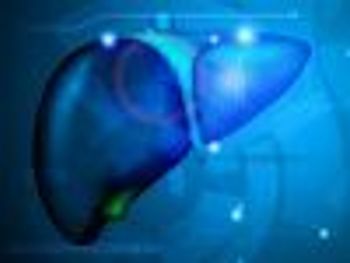
Combination therapy using Bristol-Myers Squibb's daclatasvir and Gilead Sciences Inc's sofosbuvir has attained a sustained viral response 12 weeks after the end of treatment (SVR12) in more than 90% of patients with hepatitis C, regardless of prior treatment.
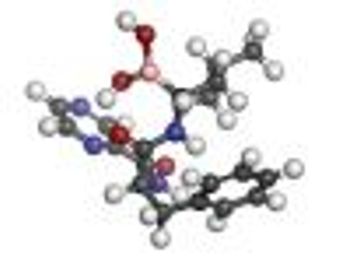
Investigators strengthened the results of a 2012 trial with a long-term follow-up of an important phase III trial evaluating a bortezomib-based regimen versus a vincristine-based regimen.

Amid conflicting evidence, Swedish researchers have found an association between multiple sclerosis (MS) and alcohol consumption, but the benefits of regular moderate alcohol intake in reducing the risk of MS may be attenuated by smoking.

In an important change to the prescribing information of Xeloda (capecitabine), Hoffman-La Roche, in cooperation with Health Canada, released an advisory on the potential for Stevens-Johnson syndrome and toxic epidermal necrolysis with use of the oral chemotherapy agent.

The controversial chronic cerebrospinal venous insufficiency theory states that constricted vasculature is part of the pathophysiology of multiple sclerosis. A recent trial shows that the theory may be a scientific dead end.

FIT biotech, a Finnish company, expects to begin clinical trials of a vaccine for HIV-infected patients in 2014.

Probiotics may play a role in treating patients with acute diarrhea and irritable bowel syndrome and in preventing traveler's diarrhea.

Compared with previous hypertension treatment guidelines, the JNC 8 guidelines advise higher blood pressure goals and less use of several types of antihypertensive medications.

An update to the Atlas of Multiple Sclerosis (MS) shows a modest increase in the number of patients with MS and the prevalence of MS between 2008 and 2013. The report also highlights disparities in access to treatment between high- and low-income countries.

Researchers in the Netherlands found that improvements in diagnostic testing, new treatments, and better management may be responsible for improvements in physical disability, anxiety, and depression ratings over the past 20 years ago in patients with rheumatoid arthritis.

Novartis announced a demonstrated improvement in progression-free survival in patients using LBH589 (panobinostat) with bortezomib and dexamethasone.
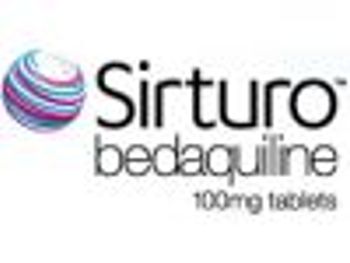
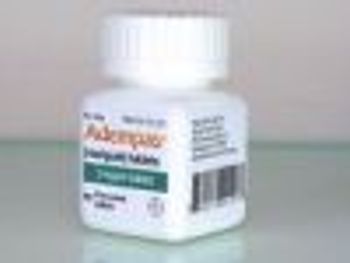

The FDA has approved Nesina (alogliptin) tablets, along with diet and exercise, for improving control of blood sugar levels in patients with type 2 diabetes mellitus.
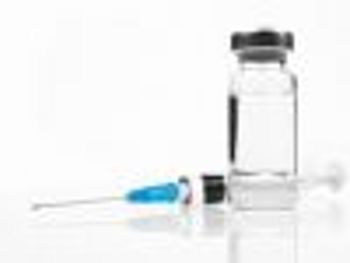
Drs. Jasielec and Jakubowiak review the state of the art in selecting an optimal induction therapy regimen for patients with multiple myeloma.

Using a benefit-based approach instead of a treat-to-target approach in determining how to treat hypertension could help prevent more cardiovascular events with less medication.

Newly released lipid guidelines have introduced a variety of changes in how clinicians determine whether patients should receive statins.

The risks and benefits associated with the use of natalizumab must be carefully considered.

Use of tumor necrosis factor–alpha inhibitors was recently linked to the reactivation of ancillary neurologic adverse events.

Qsymia (phentermine and topiramate extended-release) is FDA-approved as an adjunct to diet and exercise for weight reduction in obese patients and some overweight patients.

Results of a phase-2b trial reveal preliminary information about the efficacy of the combination treatment of faldaprevir and deleobuvir for hepatitis C virus infection.

Interstitial lung disease (ILD) is a known rare side effect of interferon treatment. Investigators confirmed the low incidence if ILD in patients with hepatitis C receiving interferon, but also recorded reductions in lung function in almost half of treated patients.

Investigators in Spain have demonstrated that a regimen of lenalidomide and dexamethasone reduces the risk of disease progression and improves survival in patients with high-risk smoldering multiple myeloma.

Investigators have found that patients with early tumor shrinkage and colon cancer expressing wild-type KRAS genes benefit from addition of cetuximab to standard therapy.

Gilotrif (afatinib) is a first-line oral treatment for certain non-small cell lung cancers.

On June 28, 2013, the FDA announced approval of Brisdelle (paroxetine) 7.5-mg capsules for the treatment of vasomotor symptoms (VMS) associated with menopause, including hot flashes and night sweats.

Rheumatologists in Austria and The Netherlands have proposed a reclassification of synthetic disease-modifying antirheumatic drugs (DMARDs) into targeted synthetic DMARDs and conventional synthetic DMARDs.

Investigators in the Czech Republic have found an association between soft tissue lesions and diminished survival in patients with multiple myeloma.

The FDA has added a new black box warning to 2 drugs, rituximab (Rituxan) and ofatumumab (Arzerra) for the potential of either drug to cause reactivation of hepatitis B virus (HBV).

Between 21% and 28% of patients taking an oral therapy for hepatocellular carcinoma (HCC) were nonadherent to treatment. Certain groups of patients may benefit from counseling services that promote improved adherence.



























